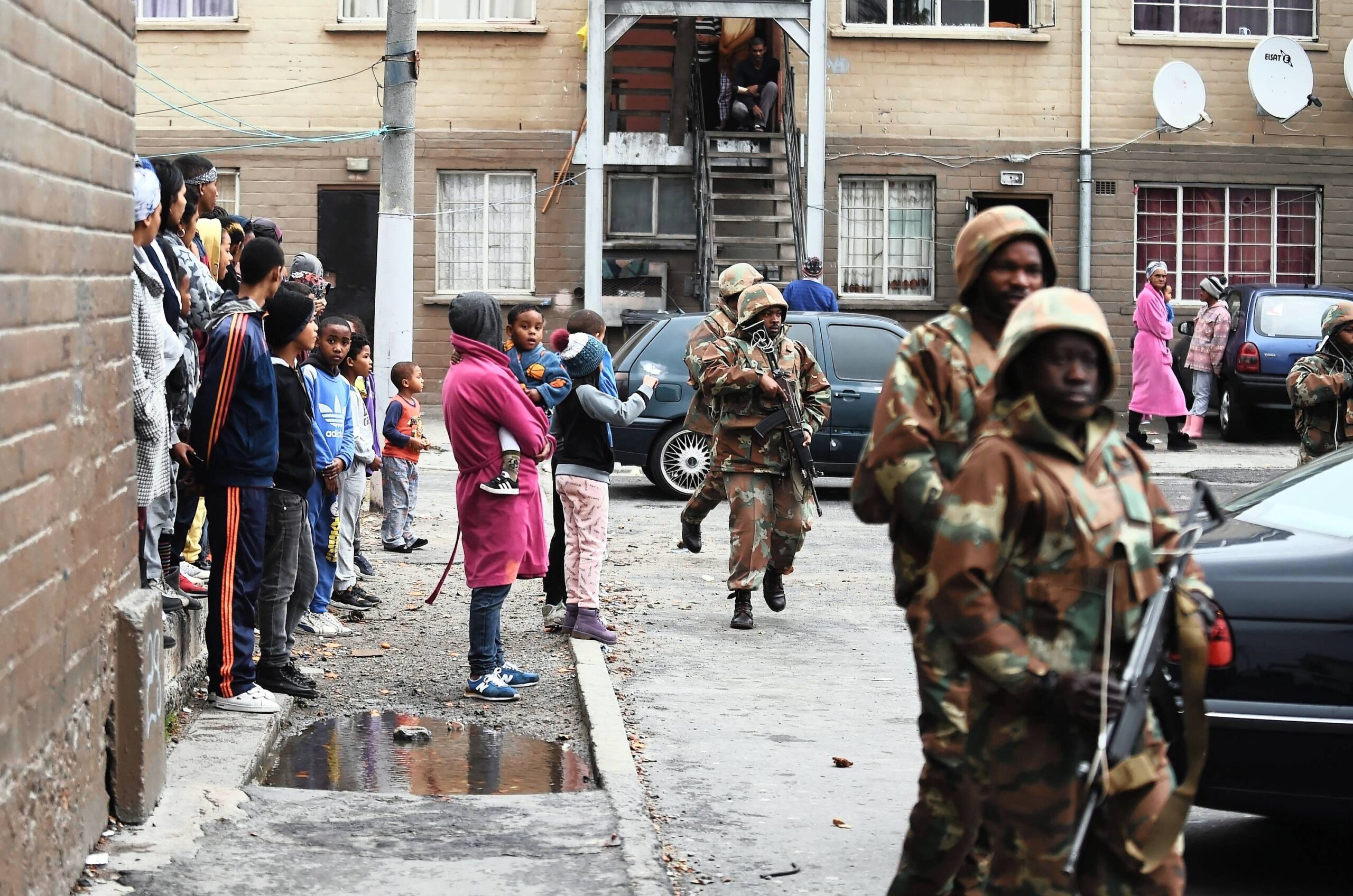The Cape Flats Safety Forum has once again urged for the deployment of soldiers to assist in combating the escalating gang and gun-related violence in the Western Cape. This renewed call comes after Western Cape Police Commissioner, Thembisile Patekile, publicly stated that there was no need for military intervention, as the police had the situation under control.
The disagreement between local community groups and law enforcement has raised questions about the most effective strategies for curbing the ongoing violence that continues to plague the Cape Flats, one of the province’s most vulnerable areas.
Tensions Over Public Safety
The call for the South African National Defence Force (SANDF) to assist in maintaining order in the Cape Flats region was re-emphasized by the chairperson of the Cape Flats Safety Forum, Albie Isaacs, during a statement made earlier this month. Isaacs, who has been a strong advocate for greater protection of communities affected by gang violence, expressed concern over the government’s reluctance to act decisively. According to Isaacs, ending gang violence should be a national priority and deploying the SANDF could provide much-needed support to overwhelmed law enforcement officers.
The issue of gang violence in the Cape Flats has been a long-standing problem. The region, which includes areas like Mitchells Plain, Manenberg, and Hanover Park, has seen some of the highest rates of gang activity and violent crime in South Africa. Drug-related violence, turf wars between rival gangs, and the widespread use of firearms have created an atmosphere of fear and instability. Many residents have complained about the inability of local police to effectively respond to the growing threat, which has led to calls for additional support.
Police Commissioner’s Confidence in Control
During the delivery of the Western Cape’s 2024/2025 third-quarter crime statistics on Tuesday, February 25, Police Commissioner Patekile emphasized that the police were capable of managing the violence in the region. He argued that while the situation was still a challenge, the police had made significant progress in addressing the issue. The commissioner’s statement suggested that there was no immediate need for the military’s involvement and that local police forces were actively addressing the root causes of crime.
Patekile’s confidence stems from recent operations that have led to several arrests and some reduction in crime rates, according to the statistics. However, many residents and community leaders, including Isaacs, remain unconvinced. Isaacs pointed out that while there have been improvements in certain areas, gang violence continues to tear apart communities, and police efforts are often outmatched by the scale of the problem.
A Human Rights Issue
Isaacs further emphasized that the situation in the Cape Flats had escalated to the point where it could no longer be ignored as a simple issue of crime but rather as a human rights crisis. The ongoing violence has resulted in countless innocent lives lost and families devastated. Isaacs remarked that the month of February marked the beginning of Human Rights Month in South Africa, and he underscored the importance of protecting the right to life, which is enshrined in the country’s Constitution.
“Noting the fact that this is the month of human rights, we will definitely continue to push for the deployment of the South African Defence Force. It is not just about controlling crime, it is about protecting lives,” said Isaacs during the briefing. He argued that the military could bring additional resources, expertise, and manpower to the ongoing effort to restore peace to the Cape Flats.
The Role of the SANDF
The role of the South African National Defence Force in supporting domestic law enforcement is a subject of debate. The SANDF has previously been deployed to assist in high-crime areas, including during the 2019 Operation Lockdown, which saw soldiers deployed to Cape Town to combat gang violence. While the military is not typically tasked with law enforcement, its presence has been seen as a necessary temporary measure to assist police forces when they are overwhelmed.
Proponents of SANDF deployment argue that the military’s experience in crowd control, rapid response, and tactical operations could help stabilize high-crime areas in the short term. Military personnel could provide security, conduct search-and-seizure operations, and help dismantle criminal networks that operate in the area.
Mixed Reactions and Future Prospects
While some community leaders and residents support the idea of deploying the SANDF, others have raised concerns about potential human rights violations. The use of military force in civilian areas is a sensitive issue, with critics warning that it could lead to escalations in violence or the mistreatment of civilians.
Nonetheless, as gang violence continues to wreak havoc in the Cape Flats, there is growing pressure on the government to reassess its strategy. The question remains whether the police can adequately manage the situation on their own or whether additional support from the SANDF is necessary to bring peace to these embattled communities.
As the debate rages on, the residents of the Cape Flats will continue to grapple with the daily realities of living in a crime-ridden environment. For them, the deployment of the military may be seen not just as a measure to restore law and order, but as a necessary intervention to ensure that their right to life is fully protected.

